 1990 Toyota Century I (VG45) Dimensions, Size & Specs
1990 Toyota Century I (VG45) Dimensions, Size & SpecsMeasurements of the 1990 Toyota Century I, engineered for optimal performance and comfort
| Dimensions | |
|---|---|
| Length: | 5120 mm201.6 in16.8 ft |
| Width: | 1890 mm74.4 in6.2 ft |
| Height: | 1450 mm57.1 in4.8 ft |
| Weight Specifications | |
| Curb Weight: | 1860 kg4101 lbs |
| Maximal permitted Weight: | 2135 kg4707 lbs |
| Tire Specifications | |
| Tire Size: |
|
The Toyota Century I (VG45) is a classic luxury sedan produced from 1990 to 1997, symbolizing traditional Japanese automotive craftsmanship and exclusivity. This sedan generation showcases a substantial and elegant size, with a length of 5120 mm (201.6 inches), a width of 1890 mm (74.4 inches), and a height of 1450 mm (57.1 inches), providing a commanding road presence typical of premium executive cars. The curb weight of the VG45 Century stands at 1860 kg (4101 lbs), supporting a maximum allowable weight of 2135 kg (4706 lbs), which balances robust build quality and refined ride comfort. Equipped with 215/65 R15 tires, the Century I ensures stable handling and smooth driving dynamics. This generation holds a significant place in Toyota's lineup as the flagship luxury sedan designed specifically for the Japanese market, emphasizing comfort, space, and understated luxury. The vehicle’s size and proportions make it suitable for customers seeking a spacious and dignified sedan experience, and it is often compared to other luxury sedans of its era for its classic design and impressive dimensions. Overall, the Toyota Century I (VG45) remains a remarkable example of a luxury sedan that combines traditional styling with a substantial footprint and solid engineering.
Discover the standout features that make the 1990 Toyota Century I a leader in its class
Have a question? Please check our knowledgebase first.
The Toyota Century I (VG45) sedan from the early 1990s has a length of 5120 mm (201.6 inches), a width of 1890 mm (74.4 inches), and a height of 1450 mm (57.1 inches). These dimensions give it a commanding presence typical of luxury sedans, offering spacious interior comfort. This size allows the Century to comfortably accommodate passengers with ample legroom, while maintaining a balance between exterior grandeur and accessibility.
The curb weight of the Toyota Century I (VG45) is 1860 kg (4099 lbs), which refers to the weight of the vehicle without passengers or cargo but with standard equipment and necessary operating consumables like fuel and oil. The maximum weight capacity is 2135 kg (4707 lbs), meaning it can safely carry an additional load of approximately 275 kg (607 lbs). This load capacity is sufficient for the driver, passengers, luggage, and optional equipment, sustaining the vehicle's designed performance and safety parameters.
The Toyota Century I (VG45) comes equipped with 215/65 R15 S tires. This tire size features a width of 215 mm, an aspect ratio of 65%, and fits on 15-inch diameter wheels, optimized for a comfortable and smooth ride. The relatively tall sidewall (65% aspect ratio) helps absorb road imperfections, offering a cushioned ride suitable for luxury sedans, contributing to the Century’s reputation for ride comfort and road presence.
Yes, the Toyota Century I (VG45) can generally fit into a standard residential garage. Standard garage dimensions typically accommodate cars up to around 6 meters (20 feet) in length and 2.4 meters (8 feet) in width. With its length of 5120 mm (5.12 meters / 16.8 feet) and width of 1890 mm (1.89 meters / 6.2 feet), the Century fits comfortably within these boundaries. However, clearance might be somewhat tighter than average cars, so measuring your garage before parking is recommended to ensure ease of access and door opening.
Compared to its predecessor, the Toyota Century I (VG45) introduced in 1990 maintained a similar overall ethos of a large, luxurious limousine-style sedan but with slight dimension changes. The predecessor's dimensions were slightly smaller in length and width, with the VG45 generation expanding the physical footprint to 5120 mm in length and 1890 mm in width, enhancing interior space and comfort. This evolution reflects a shift toward more spaciousness and improved legroom, emphasizing luxury while retaining the Century's signature classic design.
In the context of early 1990s luxury sedans, the Toyota Century I (VG45) holds its own with a sizeable footprint. Its length of 5120 mm (201.6 inches) places it larger than many European luxury sedans like the Mercedes-Benz S-Class W140, which was about 5135 mm in length, offering a similar level of presence. Its width at 1890 mm is also competitive, allowing ample interior spaciousness. While some German or American luxury sedans might be wider or heavier, the Century prioritizes traditional styling and extremely refined ride quality, often with a focus on rear passenger comfort favored by chauffeur-driven customers.
The Toyota Century I (VG45) typically seats five passengers, with a focus on rear passenger comfort. Its generous dimensions translate to abundant legroom, headroom, and shoulder room, especially in the rear seating area, which often features luxury refinements such as plush upholstery, wood trim, and electronic controls. The car is aimed primarily at executives and dignitaries who prioritize comfort and quiet ride quality. The cabin design conserves a formal and elegant atmosphere, ensuring a serene environment ideal for long-distance travel.
The Toyota Century I (VG45) introduced several noteworthy features during its production, emphasizing luxury and reliability. Mechanically, it was powered by a 5.0-liter V8 engine, known for smooth and quiet performance, paired with a 4-speed automatic transmission tailored for refined acceleration. Design-wise, it maintained Toyota's traditional styling cues with understated elegance, featuring hand-crafted wood interior details and a spacious cabin. The vehicle also integrated early luxury comfort technologies, including advanced air conditioning controls and power-operated seats, aiming to provide an uncompromising executive experience.
Considering its luxury focus and large 5.0-liter V8 engine, the Toyota Century I (VG45) offers moderate fuel efficiency typical for its class and era. Expected consumption generally ranges around 12-15 liters per 100 kilometers (approximately 16-20 miles per gallon). This reflects its emphasis on smooth, quiet operation rather than economy. The weight of 1860 kg (4099 lbs) also contributes to fuel demands. While not designed as an economical vehicle, the Century balances power and comfort with fuel consumption in mind, serving primarily as a prestigious limousine rather than a daily commuter.
The Toyota Century I (VG45) incorporated safety features aligned with luxury sedans of the early 1990s. While not as extensively equipped as modern cars, it included essentials such as anti-lock braking system (ABS), driver and passenger airbags, and reinforced body structures aimed at occupant protection. Its heavy weight and solid build contributed to passive safety. Moreover, the car's focus on ride quality and stability lent itself to safe handling characteristics. However, advanced electronic safety aids available today were largely absent, reflecting the technological norms during its production period.
Discover similar sized cars.
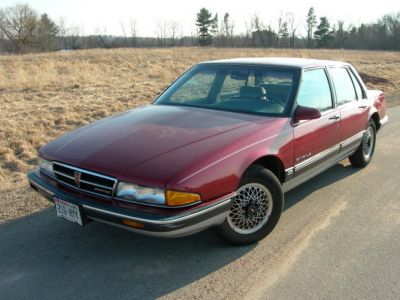
| Production: | 1986-1991 |
|---|---|
| Model Year: | 1987 |
| Length: | 5040 mm198.4 in |
| Width: | 1855 mm73.0 in |
| Height: | 1385 mm54.5 in |

| Production: | 1993-1997 |
|---|---|
| Model Year: | 1993 |
| Length: | 5121 mm201.6 in |
| Width: | 1890 mm74.4 in |
| Height: | 1434 mm56.5 in |
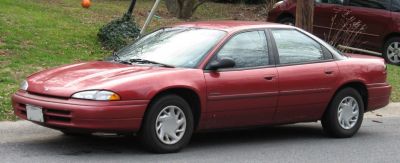
| Production: | 1992-1998 |
|---|---|
| Model Year: | 1993 |
| Length: | 5124 mm201.7 in |
| Width: | 1890 mm74.4 in |
| Height: | 1429 mm56.3 in |

| Production: | 1995-1999 |
|---|---|
| Model Year: | 1996 |
| Length: | 5070 mm199.6 in |
| Width: | 1850 mm72.8 in |
| Height: | 1410 mm55.5 in |
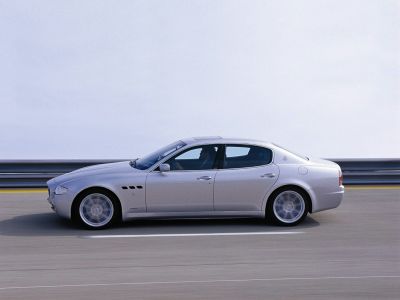
| Production: | 2003-2012 |
|---|---|
| Model Year: | 2003 |
| Length: | 5097 mm200.7 in |
| Width: | 1885 mm74.2 in |
| Height: | 1438 mm56.6 in |
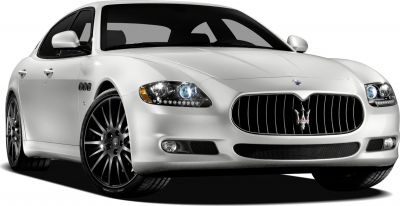
| Production: | 2008-2012 |
|---|---|
| Model Year: | 2008 |
| Length: | 5097 mm200.7 in |
| Width: | 1885 mm74.2 in |
| Height: | 1438 mm56.6 in |
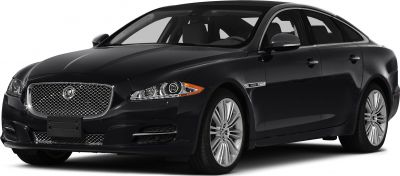
| Production: | 2009-2015 |
|---|---|
| Model Year: | 2010 |
| Length: | 5127 mm201.9 in |
| Width: | 2105 mm82.9 in |
| Height: | 1457 mm57.4 in |
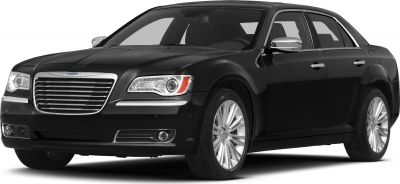
| Production: | 2011-2014 |
|---|---|
| Model Year: | 2011 |
| Length: | 5066-5088 mm199.4-200.3 in |
| Width: | 1886 mm74.3 in |
| Height: | 1462-1480 mm57.6-58.3 in |
